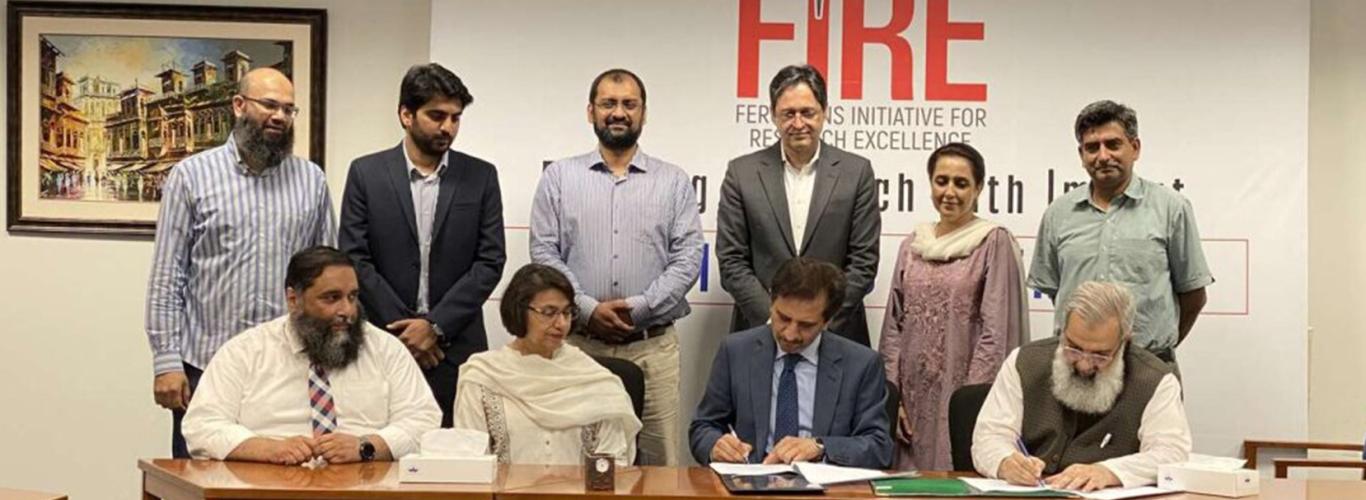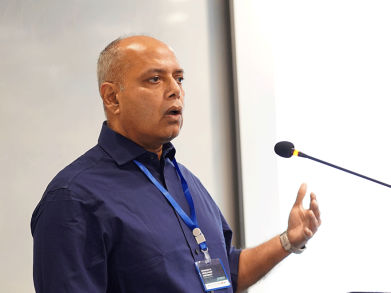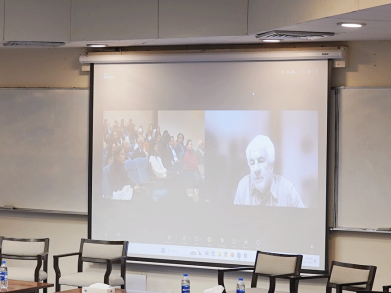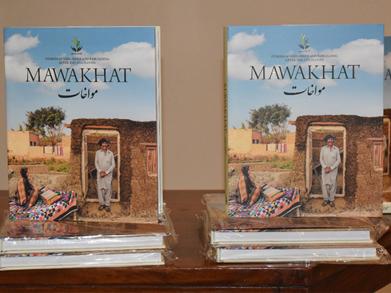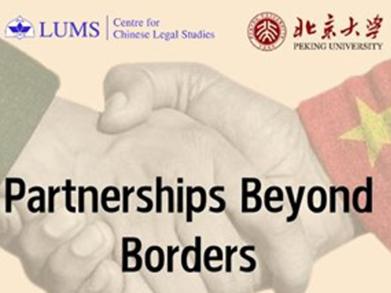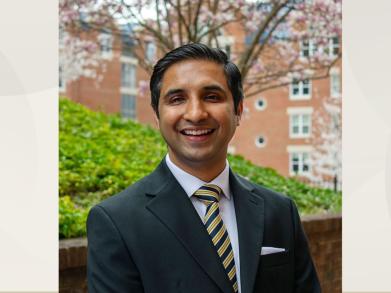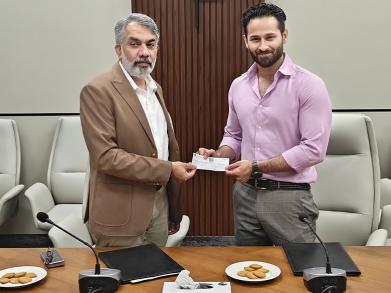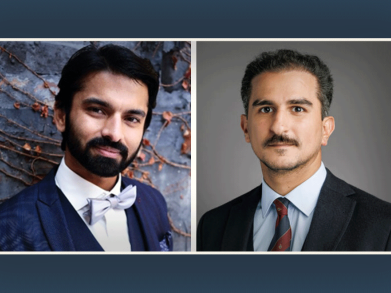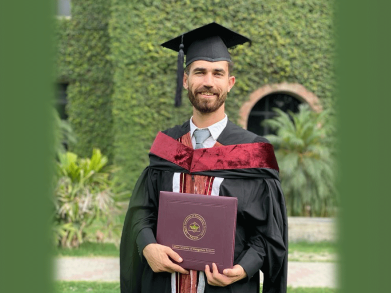Ferozsons and iHART Sign MoU to Support Research at LUMS
LUMS announced a collaboration with Ferozsons Laboratories Ltd. and iHART (Innovations in Healthcare Advocacy, Research and Training) at a ceremony held on September 26, 2023, at the university. Under the ‘Ferozsons Initiative for Research Excellence’, the collaborating organisations will develop courses focusing on the spectrum of clinical research and research processes highlighting biostatistical, epidemiological methods, study design protocol preparation and ethical and legal issues in clinical research. The initiative will also provide facilities and resources for the training of clinical and basic scientists in performing clinical and translational research.
The MoU was signed by Aamir Zafar, Chief Commercial Officer, Ferozsons Laboratories Ltd. and Dr. Tariq Jadoon, Acting Vice Chancellor and Provost. Also present at the ceremony were Osman Khalid Waheed, CEO, Ferozsons Laboratories Ltd; Nuzhat Kamran, Director, Advancement, LUMS; Dr. Muhammad Sabieh Anwar, Ahmad Dawood Chair and Dean, Syed Babar Ali School of Science and Engineering (SBASSE) and Dr. Shaper Mirza, Associate Professor, Department of Biology, SBASSE.
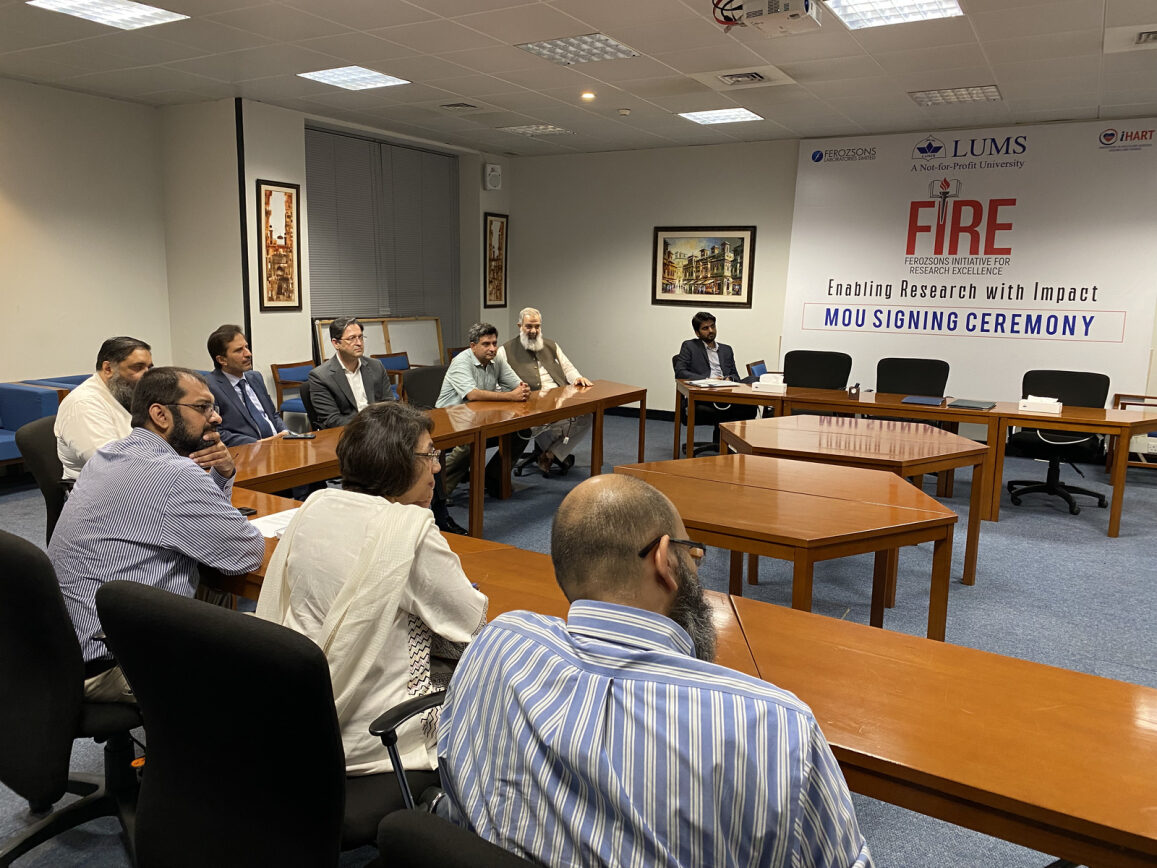
Ferozsons Laboratories is one of the leading pharmaceutical manufacturing companies in Pakistan with a network of over 200 healthcare representatives spanning 100 territories. The company has a strong presence in cardiology, gastroenterology, oncology and dermatology, with a commendable track record of in-licensing of products.
iHART offers customised services to respond to healthcare challenges and focuses on emerging markets, transitional economics and rapidly developing states. With a wide variety of clients in the healthcare sector, the company responds to challenges, data needs, technical issues and evidence generation to improve quality or healthcare reform.
Under the ‘Ferozsons Initiative for Research Excellence’, a course titled ‘Clinical Research Design Course’ will be developed. Discussing its objectives, Dr. Shaper said, “Designing preventive interventions for diseases requires an in-depth understanding of the local context and practices involved in the spread of disease, as well as a system to translate this knowledge into designing targeted interventions for lowering the overall disease burden.”
The major barriers to the development of such programmes, she added, are the unavailability of an enabling system, and lack of the critical mass of physician-scientists and basic-science researchers trained in translational research methods; these are required to understand and address the rapidly evolving healthcare needs of the local community. "The course will provide necessary clinical research training to both types of scientists. LUMS, being a leader in developing innovative and interactive pedagogical methods, will be the lead in design development and execution of the course,” she said.
While sharing an overview of the initiative, Dr. Shaper discussed how it will advance clinical and research processes. “The programme will provide training (for both coursework and lab-based projects) to researchers and physicians, enabling them to conduct epidemiological, implementational, interventional and translational research.”
In addition to coursework, to ensure the experience is comprehensive, students will have access to laboratory space for conducting experiments, data analysis tools and mentors who will guide them through every step.
Emphasising the importance of this collaboration, Dr. Shaper shared that the faculty at LUMS is partnering with both sectoral partners and healthcare institutes to maximise the training of students and professionals in and outside of LUMS alike. “The opportunity for growth is immense, and LUMS looks forward to turning the course into a full MS degree programme in due time,” she added.

